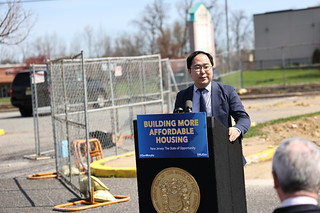
Mississippi and Louisiana Students Score Better than NJ Students. NJ Spends Much More.
October 28, 2025
New Report: NJ Isn’t Preparing Students For Life After High School. Let’s Fix That.
November 3, 2025Six Percent of Trenton Third Graders Read At Grade Level. Here Is What That Means.
In Trenton Public Schools, according to the New Jersey Department of Education, six percent of third-graders read at grade level. That means out of the 1,176 Trenton students who took the state standardized third grade reading test last spring, only 70 reached proficiency; 1,106 students were unable to read a story without pictures, pull out the main idea, and decode unfamiliar words. Statistically, says Chad Aldeman, only five percent of those 1,106 students will ever catch up.
Three points here:
First, Trenton is a tough district* but it is not the only one in NJ which disenfranchises students and sets them on a trajectory for failure. In Asbury Park Public Schools district, 8% of third graders read at grade level. In Camden it’s 11% and in Newark it’s 23.5%.
Even in high-flying Montclair, 37 percent of third grade students can’t read proficiently.
Do parents in these districts (and there are a lot more in NJ) know their children will likely be stuck? Probably not: nationwide, 92% of parents think their kids are at grade level in both reading and math. Reading Heroes says an important way to counteract the pretense that students are learning what they need to be successful is to show parents “clear measures – state and formative assessments,” what we here call NJ Student Learning Assessments (NJSLA) administered by the state and districts’ interim assessments like MAP or iReady. If the state education agency and the school district are open and transparent with objective measurements of learning, parents’ belief that their child is on grade level drops to 44%.
That’s important: The most likely way those students will get the support they need to catch up is through their parents’ advocacy. When those parents are kept ignorant, the students will stay that way too.
Second point: New Jersey is one of only six states that hasn’t released standardized test scores from last spring. (The other five are Illinois, Maine, Nebraska, Pennsylvania, and South Dakota.) This is why the test scores I’m using are from the 2023-2024 school year. Parents in individual districts don’t even find out their kids’ scores until October, seven months after kids took the test, missing out on the summer break to get tutoring help or the beginning of the school year to sign up for additional support. School boards don’t find out until the following month.
I asked the DOE when it would release the NJSLA statewide test data; it has not yet responded.
Finally, in mid-August the DOE announced it was rolling out a new set of assessments in reading and math. A great platform called NJ21 sent an email to Education Commissioner Kevin Dehmer a week or so later asking if the new tests would be comparable to the old tests; if they’re not we will lack the baseline data, accumulated over years, to see if new initiatives are helping students learn or whether our (gaping) achievement gaps are shrinking. We — parents, teachers, school leaders, DOE staff — need the data from the new tests to align with the old ones or, says NJ21, the state would create “a circumstance where declines in proficiency can be brushed aside as part of a ‘new baseline.’”
NJ21 has followed up with several additional emails to the DOE. As of Oct. 15th it has not responded to questions about the new assessments.
Delaying standardized test results— a feature, not a bug of the NJ DOE — punishes teachers (who could use data to inform instruction), parents (who could demand intervention), and students (who remain on a trajectory for failure). The only winner is pretense.
*L. A. Parker from the Trentonian on new literacy grants just announced by the state DOE: “Gov. Phil Murphy said his administration has ‘made it a priority to equip our children with the skills and support necessary to set them up for a (lifetime of) success…..Literacy is the tool that unlocks the opportunities education creates for our students.’ [But] Trenton Public Schools received no monies for reading initiatives. Leaders scrambled for answers.”




